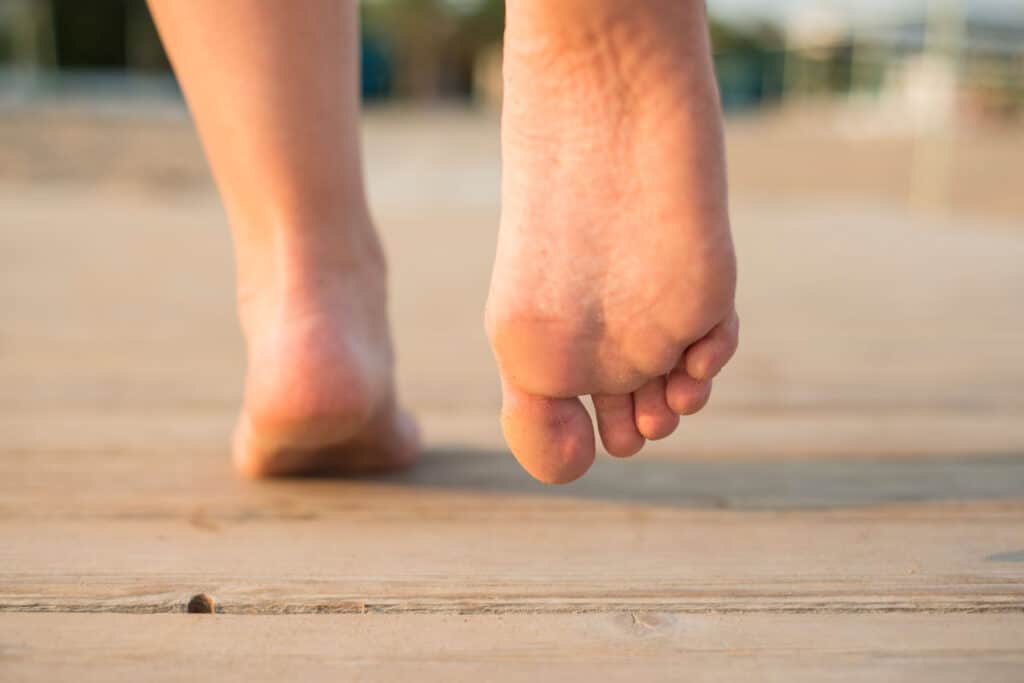Plantar fasciitis. Most describe the pain as a stabbing sensation in the heel of the foot. Sometimes that pain radiates up through the arch of the foot and is typically described as being worse in the mornings.
Statistics from the American Academy of Orthopedic Surgeons are that In the United States alone, 2 million people are diagnosed with plantar fasciitis each year, and approximately 10% of the population will be diagnosed in their lifetimes. That means if you’ve never had it, you probably know someone who has.

Usually, patients between the ages of 40-60 experience plantar fasciitis most frequently; however, younger people who are active dancers, long-distance runners, or gymnasts can also occasionally suffer from it, too. The bad news is that the plantar fascia muscle, a thick fibrous band that runs along the bottom of the foot connecting the heel bone to the toes, is a must-have. There’s no “cutting it out.”
The reason plantar fasciitis hurts so badly is that it is the inflammation of that thick plantar fascia muscle band. Everyone knows inflammation – of any kind – can be very painful.
The good news is that treatment for plantar fasciitis rarely includes surgery. Maintaining a healthy weight, physical therapy that includes a home exercise program, custom orthotics, ice, and over-the-counter pain medications are all important pieces of effective plantar fasciitis treatment. Protection of the plantar fascia with ergonomic sandals is a must in the mitigation of micro tears which cause painful inflammation. Wearing a dorsiflexion night brace to bed keeps the plantar fascia from shortening during sleep. It’s this shortening that causes the severe pain patients typically describe as occurring at the beginning of their morning routine. Both the sandals and night braces can be properly fitted and ordered at most physical therapy offices.
The most important thing for patients to know is these symptoms are easily treatable, minimally invasive, and typically very successful; however, delayed treatment for plantar fasciitis can lead to more long-term orthopedic problems that include back, hip, and neck pain. If you or a loved one are suffering from what you believe could be plantar fasciitis, contact FYZICAL today to see how our effective treatment options can help you.
